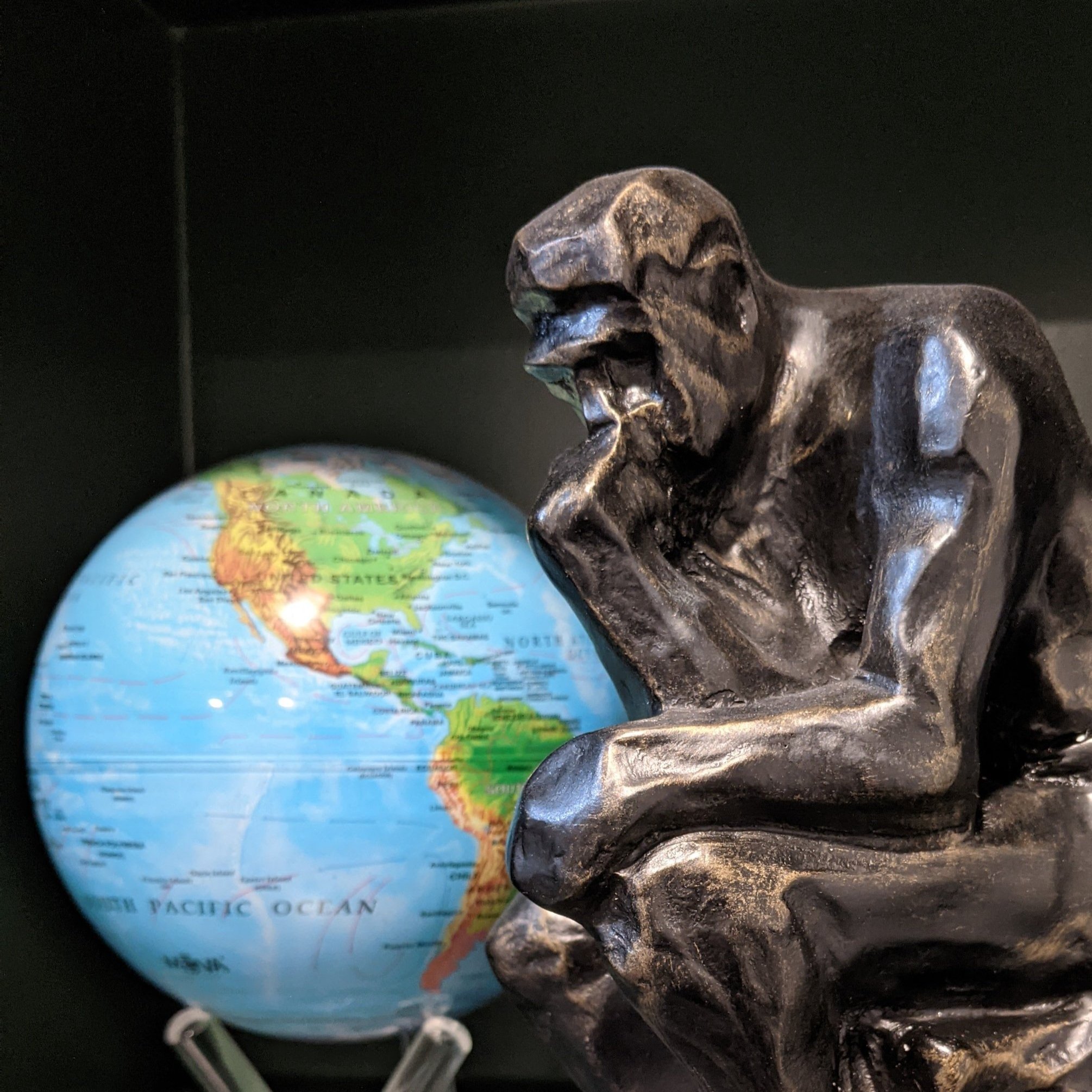
Advice for Writing, Editing, Reading, and Life.
New posts on Mondays (for non-fiction) or Fridays (for fiction)

2023 Novel November Editing Giveaway
Every year, come October, I tell myself I should participate in National Novel Writing Month (NaNoWriMo). And most years, come the day after Halloween, I’ve decided I can’t handle that much extra work in my life right now.
This year, because I knew I wouldn’t be writing, I decided to do something for writers.

Adeptly Avoiding Adverbs (And Allowing Them Adroitly)
Many famous writers, from Mark Twain to Stephen King, have suggested that the only good adverb is one left out of your draft. As with lots of advice offered glibly, this comes from a good place, but it has to be understood in context of why adverbs cause problems. A poorly constructed sentence without adverbs is still poorly constructed.

Anatomy of Storytelling: Do Stories Require Language?
Imagine that meaning is water. To know how much water you have, you need a system of measurement. To move the water from place to place, you need a bucket. Until you put your story into a language, it cannot be carried by someone else.

Anatomy of Storytelling: How Do You Tell a Story?
Anyone can tell a story. All of us do it daily. But not everyone can tell a story that will stick with the audience for years to come. If storytelling is the primary purpose of language (which, I’d argue it is), and language is the primary characteristic that separates us from animals (which, I’d argue it is) …
Isn’t it worthwhile to be good at it?

Anatomy of Storytelling: What Is a Story?
What even is a story? Lots of ideas came to mind. Perhaps a story is a series of events relayed by one person (or group) to another person (or group)? Or, perhaps a story is the communication of thoughts and feelings?
Ultimately I settled on this: a story is the base unit of meaning. To help me explain, I need to take a tangent into science.

Five More Rookie Writing Mistakes
No writer is perfect. The closest we can get is to keep pushing forward, and allow others to speak into our work to help us find and fix mistakes. My hope is that you, by reading this post, are helped to find and fix these rookie mistakes (that I still sometimes make).

Three Tips to Write Better Dialogue
You may not immediately think so, but dialogue can make or break a work of fiction. When I wrote about common writing mistakes, I didn’t touch on dialogue, but it’s not because dialogue is easy. It’s because it’s hard, and the mistakes writers make when writing dialogue aren’t, in my opinion, rookie mistakes.

A Case Study on Character: The Jungle Book (1967 vs. 2016)
With the recent release of Disney’s “live-action” Pinocchio remake, it would be too easy to simply point out all the issues with stripping a character of agency and regurgitating a colorful mess onto a streaming platform.
Instead, I want to look at what happens when you take a listless character and breathe life into them. That’s right, we’re finally tackling The Jungle Book, the only remake that I would argue wasn’t just good, but better than the animated classic it drew inspiration from.

Why Write? An Overview of Motivation
Why write? Why bother with this blog? Why post anything at all?
The short answer is because I can.

Ten Original Prompts to Get You Writing
As a rule of thumb, if you struggle with writer’s block, the worst possible solution is to stop writing and wait for inspiration. The only way to overcome writer’s block is to ignore it and push through. However, if you truly have no idea how to press on in a project, it can be really helpful to take a break from that project and write something totally different as a sort of “palate cleanser.”
With that in mind, here are five wildly different prompts to help you get writing again.

Random Tips to Write With More Confidence and Authority
When I lost my job and my book deal along with it, it was a huge blow to my confidence, and it greatly exacerbated my case of imposter syndrome. Part of the reason I began this blog in the first place was to share what I do know about writing, however little it may be, and give other writers and editors the tools they need to stop feeling like a fraud.

Five Questions to Guide Your Worldbuilding Process
Not all fiction is set in a fantastical world, distant planet, or alternate timeline, but all fiction requires some level of worldbuilding. Even a novel written to be a realistic drama set in a real, modern-day city needs internal consistency to ensure the parts that are fiction don’t clash with the parts that are not.

Building a Brand: The Difficult Simplicity of Defining Your Audience
Your audience is not how many people are reading your content. Your audience, at its most basic level, is who your content is for. Knowing this shapes what and how you write—what information has to be communicated, what can be assumed, and what can be otherwise ignored.

Helping Fledgling Ideas Take Flight: Advice from a Self-Published Author
I cannot begin to tell you how many times I’ve spoken with someone who excitedly shared a book idea. When I eagerly inquire what they’ve done with this idea, too often they say, “nothing.” They haven’t written it down, or if they have, they haven’t taken steps to find out how to publish.
This saddens me, so here is some advice for aspiring authors

How to Receive Feedback Well
Writing with the intent to distribute is a beautiful paradox; it’s at once intensely personal and intimate, and highly collaborative and public. Asking for feedback can be terrifying, but it’s also very often thrilling and always necessary.

How to Give Feedback Well
Every bit of feedback you provide should be helpful above all else. When you work with another writer, you’re a collaborator, not a competitor. The more good writing that makes it into the world, the better off we all are.

Five Qualities Writers Should Strive to Exhibit
Some traits are pretty universally useful in basically any career context. However, every career path will require certain characteristics more than others, or require them to manifest in different ways. Here are five traits that I think are of particular importance for writers.

Five Exercises to Make Writing Easier (and More Fun)
Writing is hard. At times it’s brutally hard. The sense of awe and dread from staring at the cursor as it blinks defiantly on a blank page intimidates even seasoned writers at times. If you find yourself avoiding writing because it feels too difficult, but somewhere deep down you still want to write, try these exercises.